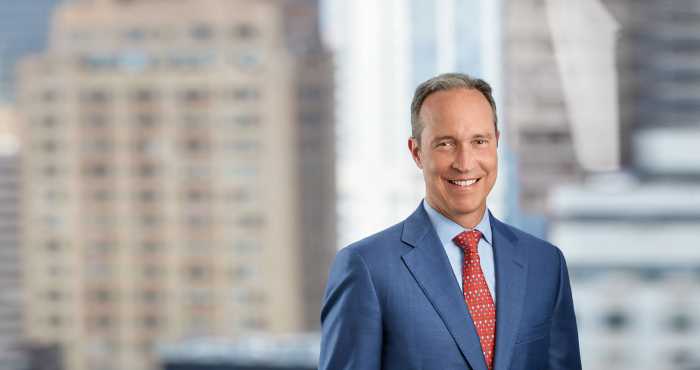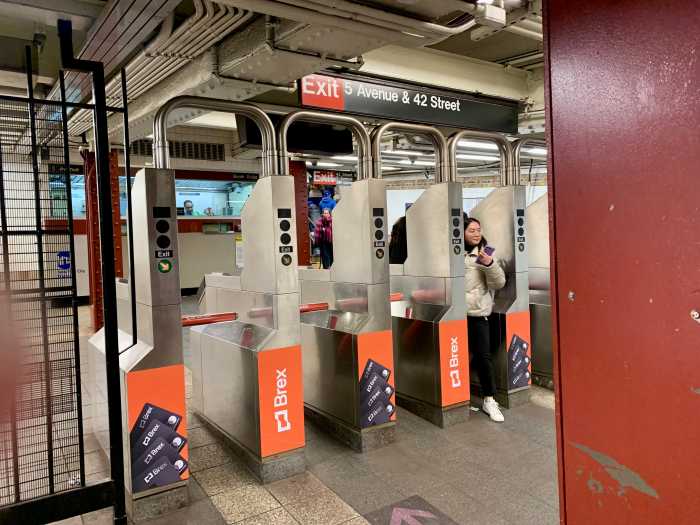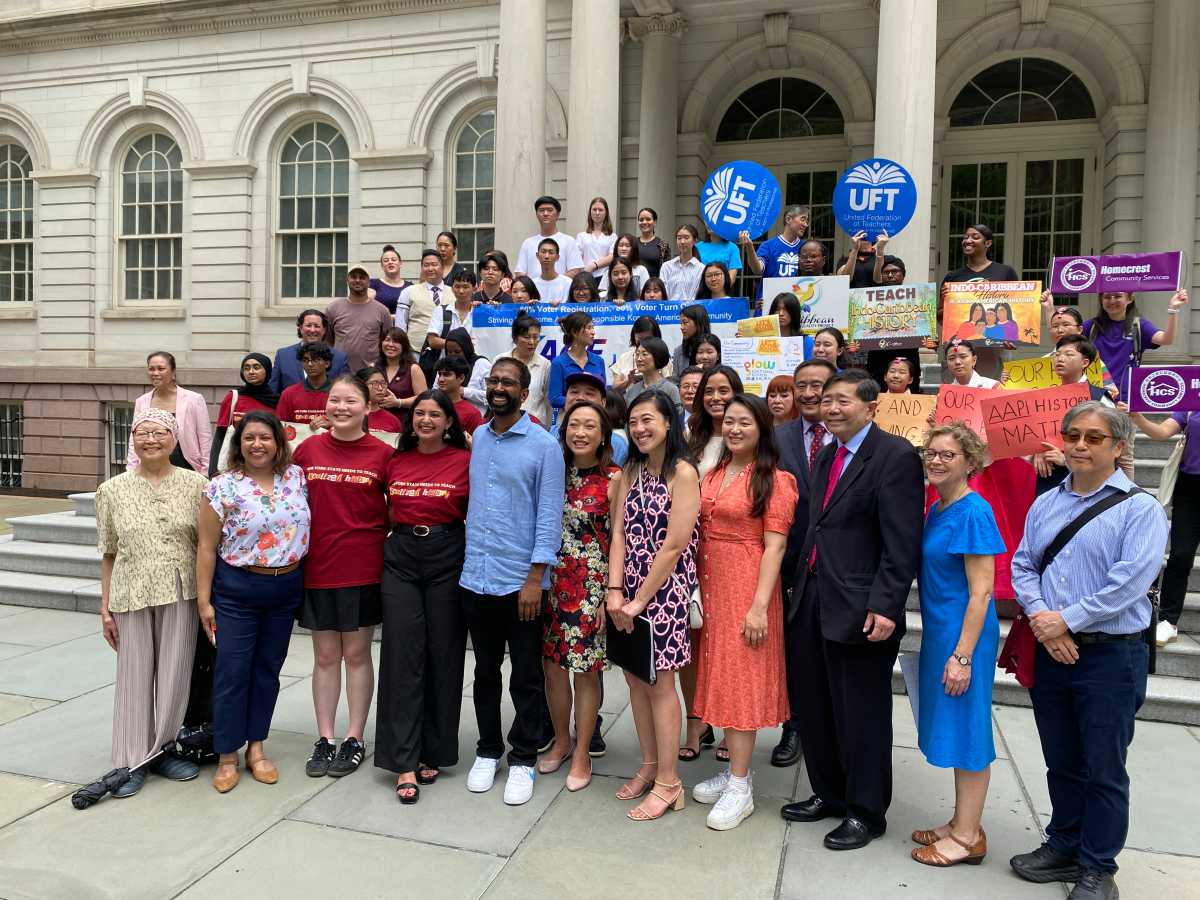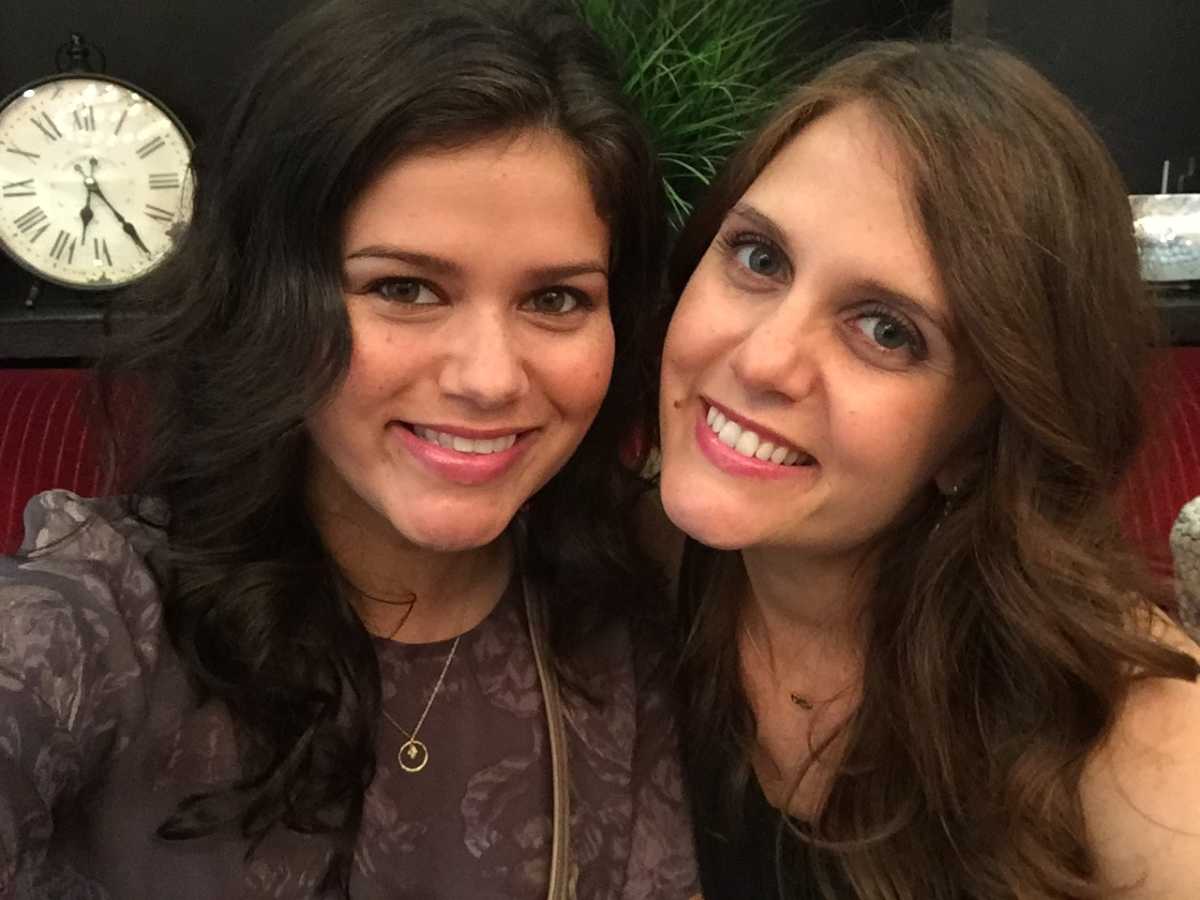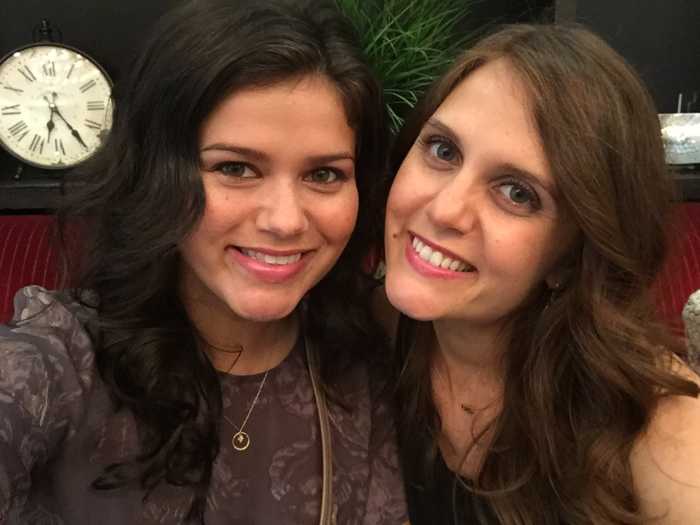
Back-to-back Amazon Prime Days are in full swing, but the only deal activists want is for Amazon CEO Jeff Bezos to change the company’s policies.
Approximately 100 protesters gathered outside Bezos’ 212 Fifth Ave. home Monday to deliver nearly 275,000 signatures demanding that Amazon end its relationship with Immigration and Customs Enforcement (ICE) and local police, as well as improve conditions for employees. They then marched to Amazon’s corporate office at 7 W. 34th Street before ending the day of action by rallying in Herald Square.
Protesters said Monday and Tuesday’s Amazon Prime Days, when discounted goods are offered on Amazon.com, are the perfect time to raise awareness of their issues with the company.
They cited Amazon’s proposal to provide ICE with its facial recognition program, according to leaked documents, and Amazon Web Services’ contract with ICE and the Department of Homeland Security through Four Points Technology to provide cloud storage and unspecified "computer-related services."
“Ever since there was a call to boycott Amazon a while back I haven’t been buying from them and I definitely won’t be buying from them on these two days,” said protester and Brooklyn resident Lila Cohen, 21. “We have to show corporations that there are consequences for them. We are watching them.”

Bolivia-born Lau Barrios, 27, now lives in Brooklyn and works with activist organization MPower Change. She said at the Monday protest that Amazon cannot continue a façade of people-friendly services and offers while supporting questionable policies for immigrants and workers.
“Amazon’s relationship with ICE is extremely problematic. … We’re here to tell them we’re not going to tolerate that,” she said. “We’re not going to let them enable a detention and deportation machine that’s hurting our communities.”
An Amazon spokesperson said companies and government organizations should use technology responsibly and lawfully and that governments must be clearer on acceptable uses. Amazon has proposed a legislative framework to that end, he said.
“We remain eager for the government to provide this additional clarity and legislation and will continue to offer our ideas and specific suggestions,” he added.
Similar protests reportedly occurred in at least seven cities nationwide. Participants included workers at an Amazon fulfillment center in Shakopee, Minnesota, who took part in a mid-shift strike, and protesters at the Amazon headquarters in Seattle.
Current and former Amazon workers joined the protest in New York, as well.
Ibrahim Sangare, 27, moved to Staten Island 10 years ago from the Ivory Coast. He worked at Amazon fulfillment center JFK8 in Staten Island from October through December 2018, when he was fired for needing to take a day off to finish a paper for his political science master’s program at Brooklyn College, he said. The work environment consisted of 12-hour shifts with a single 30-minute break, scared employees, unpaid overtime and overly demanding managers, he said.
“The Amazon warehouse is a modern plantation,” he said. “Every day there is an ambulance coming. People are falling down, they’re dizzy. … I was always in pain all over my body [from standing the entire shift]. My back, my neck, my knee, my feet — your body is warning you because 10-12 hours is too much.”
Sangare also said workers weren’t allowed to use the restroom as needed. He described the inside of the fulfillment center as “very hot and humid” and said if people didn’t drink enough water, they got sick. But when they did drink water, they would have to go to the bathroom and were not allowed to do so outside of their designated break times.

“The $17.50 to $19 an hour isn’t worth it,” he said.
The Amazon spokesperson said Prime Day is an opportunity for critics to spread false information.
“These groups are conjuring misinformation to work in their favor, when in fact we already offer the things they purport to be their cause — industry leading pay, benefits and a safe workplace for our employees,” he said. “If these groups — unions and the politicians they rally to their cause — really want to help the American workers, we encourage them to focus their energy on passing legislation for an increase in the federal minimum wage because $7.25 is too low.”
Queens resident Daisy Chung, 39, deputy director of the activist organization The Alliance for a Greater New York (ALIGN), said that instead of getting in on Prime Day deals, people should consider the hidden costs of their savings.
“It’s horrific what’s happening [at our border] and workers are being mistreated, particularly in warehouses,” she said. “People have to understand that cheap things aren’t cheap just out of coincidence. It comes at a very explicit price for society, our families, working people.”




